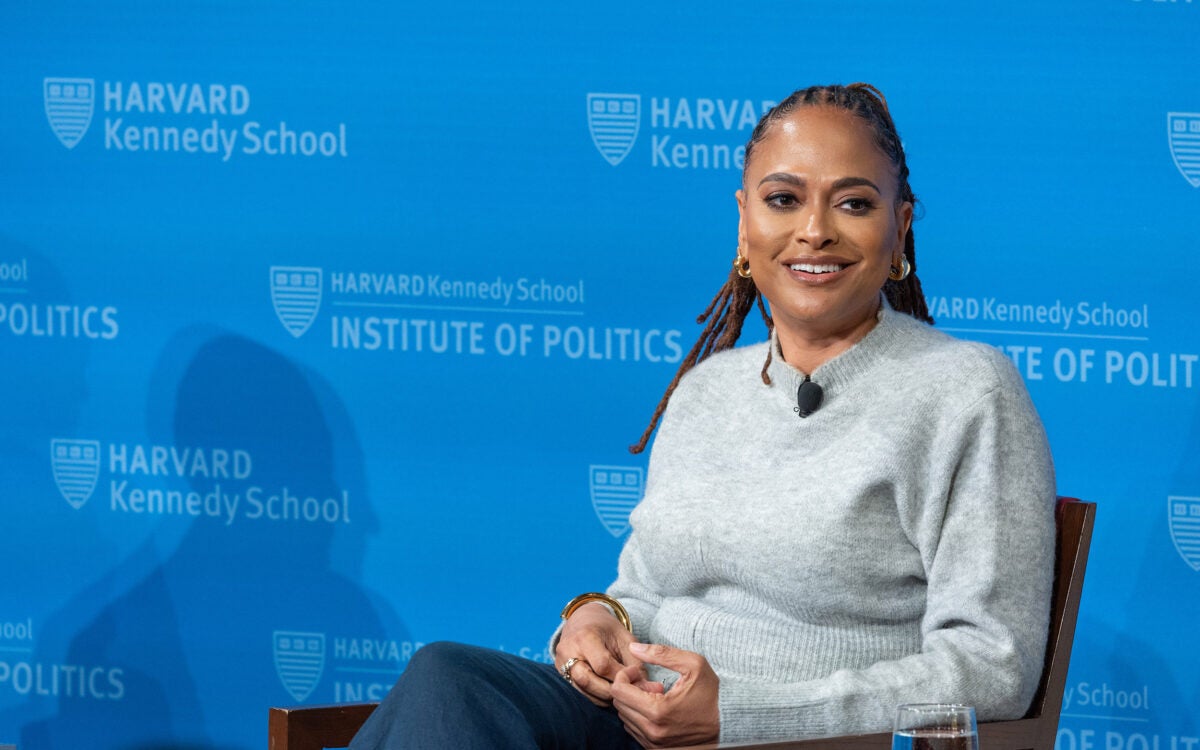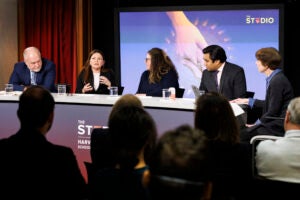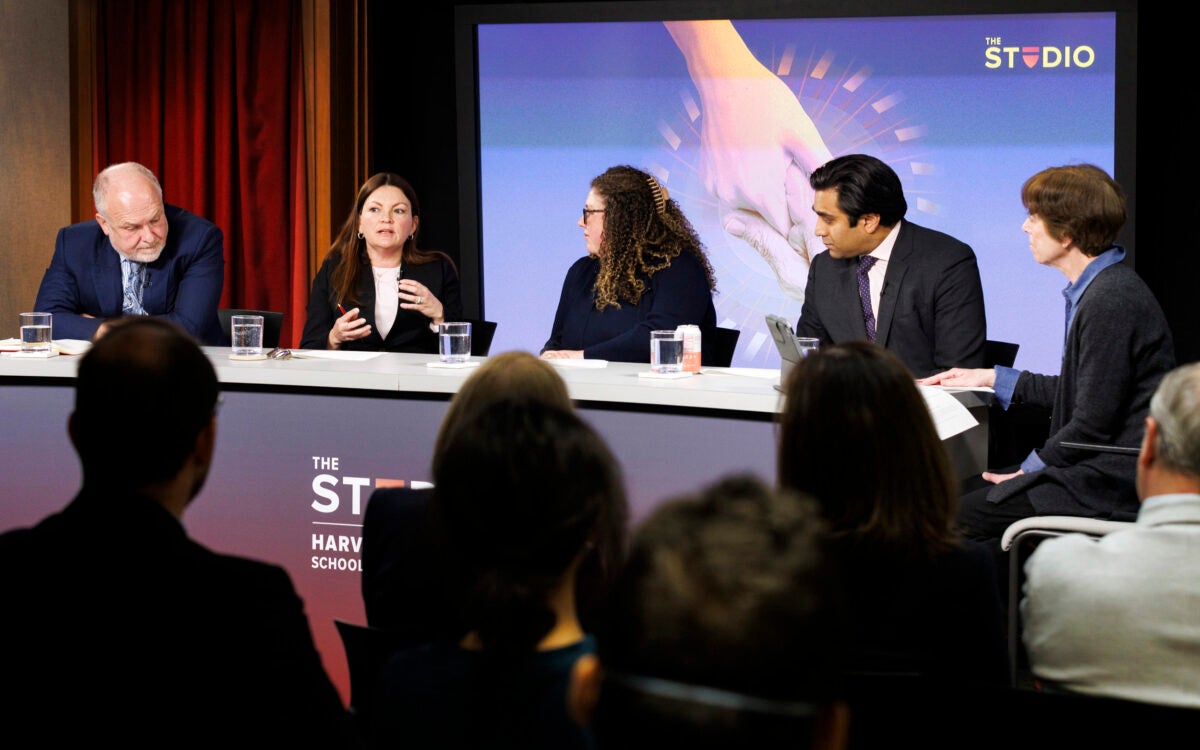Harvard Kennedy School faculty reflect on the World Economic Forum
Europe’s financial crisis dominated the World Economic Forum’s (WEF) annual meeting, which wrapped up Sunday (January 29) in Davos, Switzerland. For the first time, growing wealth disparities were a main topic of discussion, thanks largely to the Arab Spring uprisings, the Occupy movement and other protests around the globe.
More than 2,500 VIPs, including Harvard University President Drew Faust, Harvard Kennedy School Dean David Ellwood, Academic Dean Iris Bohnet and several Kennedy School faculty members attended the five-day gathering. The week included intense discussions, with some 260 sessions involving the world’s foremost business and political leaders on the planet’s most pressing issues.
In a panel discussion Friday (February 3), Harvard Kennedy School faculty members shared their experiences of the WEF.
Overall, Ellwood remarked how subdued the atmosphere was at Davos. “I wouldn’t call it pessimism, but there was very little optimism on a broad scale.”
“The Arab Spring is over,” said Lawrence Summers, Charles W. Eliot University Professor of Harvard University. According to the panelists, that seemed to be the general consensus. “It is now being referred to as the ‘so-called Arab Spring. No one is optimistic about the conflicts in the Middle East,” said Ellwood. “There were a lot of private conversations on the Middle East, but there seemed to be a fear of openly discussing the topic,” added Dan Shapiro, Director of the Harvard International Negotiation Program, and faculty member at the Program on Negotiation at Harvard Law School and Harvard Medical School/McLean Hospital.




